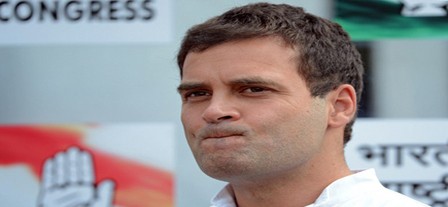
Ending a week-long suspense and speculation, Congress president Rahul Gandhi has decided to contest from Kerala’s Wayanad Lok Sabha constituency apart from the Gandhi family’s traditional bastion of Amethi.
The move, calculated to re-energise the grand old party in the south that sends 130 seats to the lower House, has undoubtedly cheered the Congress cadre in Kerala.
At the same time, it is bound to cheer the BJP as well, for two reasons. Rahul’s foray into Wayanad will accentuate the wedge between the Congress and Communists, two consistent, credible and powerful anti-BJP poles, undermining the electoral momentum against the RSS’s Hindutva ideology, and second, it will give avoidable fodder to Union minister Smriti Irani to run a campaign that the Congress president is afraid of losing his Amethi seat.
No wonder, there is a muted feeling in the Congress that some leaders misled Rahul into the Wayanad slugfest.
Wayanad with roughly 50% Hindus and 28.65% Muslims and over 21% Christians is always seen as the Congress’s most assured seat in the entire south.
The seat came into existence in 2009 after the delimitation of constituencies. The lush green forested rural district, swathed by mountains and vast patches of paddy fields (the name Wayanad is derived from Vayal Nadu — land of paddy field), has over eight lakh voters.
The Congress-led United Democratic Front (UDF) and CPM-led Left Democratic Front (LDF) are the major players in the seat and in the last two elections, LDF-backed CPI lost to UDF candidate MI Shanavas, who passed away in November, last year.
In 2014, the BJP secured 80,752 votes, while the Aam Aadmi Party (AAP), which too fielded a candidate from the seat, polled 10,684 votes.
This time, the BJP has allotted the seat to its ally Bharat Dharma Jana Sena (BDJS), a backward Hindu caste outfit.
On April 23, when the constituency goes to vote, Gandhi’s main challenger will be CPI’s PP Suneer.
Critics say, by agreeing to contest from Wayanad, Gandhi has ruptured the anti-Modi narrative buoyed by the unity of Left, democratic, liberal and secular forces.
While the Congress-CPM alliance in West Bengal also collapsed prematurely due to turf war, the Congress president taking on the Left candidate in Kerala is even more pernicious as it has ideological connotations.
The BJP is not a big player anywhere in the south, barring Karnataka, so the high-profile Congress-Left clash in God’s own country will be a saffron delight.
Moreover, post poll, even in the unlikely scenario of the Congress securing about 150 seats, the party as it races to meet the number crunch, will need the support of all secular parties, including the Left to form the next government in Delhi.
If the CPM decides to be vengeful, it could even refuse to support Gandhi as the PM candidate, instead insisting on a regional secular leader in case the BJP failed to muster the numbers.
In states like Bihar, Telengana, Andhra and Rajasthan, the CPI(M) and CPI have pockets of influence and their cadre can vote against Congress candidates out of pique. In seats where victory margins are too slender, this could pose problems for the grand old party.
The sole argument proffered by the Congress managers is that Gandhi’s foray into the God’s own country will re-energise the party in the entire south.
But that is a flawed contention. Barring the Telangana Rashtra Samithi (TRS) and YSR Congress, the BJP has no supporters in the south, while parties like the Dravida Munnetra Kazhagam (DMK), Telugu Desam Party (TDP), Janata Dal-Secular (JD-S) and CPM-CPI are potential allies of a Congress-led UPA-III.
In any case, the Congress is unlikely to win any seat in Andhra Pradesh where it drew a blank in 2014 and in neighbouring Telengana also, the party is nearly wiped out.
In Tamil Nadu, it has the powerful DMK as an ally and in Karnataka, it has the JDS. So, logically Gandhi should have been micro-managing elections in the north, east, west and central parts where the BJP is strong instead of frittering away Left goodwill.
Only in Kerala, the Congress and the CPM are engaged in turf wars, but they have been comrade-in-arms in Parliament and elsewhere.
The CPM and its foot soldiers, together with Marxist intellectuals, were also in the forefront of the aggressive anti-BJP campaign making the Congress’ job easy months before team Rahul took to social media.
“What the RSS has been trying since long, that is, trying to create a wedge between the Congress and Communists, Gandhi’s advisers have done it,” said a concerned Congress veteran, adding that if at all the Gandhi scion wanted to contest from a second seat, he should have pitted himself against a strong BJP satrap.


.jpeg)

